
Keynote speakers
Under the theme “From global to local ecosystem services: pathways to Nature-based Solutions inspired from Down Under,” keynote speakers explored how Indigenous knowledge, innovative Nature-based Solutions, and stronger science-policy-practice links can guide sustainable action. From local success stories to global ambitions, these talks highlighted the vital role of ecosystem services in shaping a nature-positive future.
Click the presentation titles below to view presentations in PDF. All the plenary presentations can be found here.
Monday
Robert Costanza, University College London, UK - Creating a Sustainable Wellbeing Future for Humans and the Rest of Nature
Kamaljit Sangha, Charles Darwin University, Australia - Understanding the economics of Indigenous efforts in land management
Tuesday
Paula Harrison, UK Center for Ecology and Hydrology and Pamela McElwee, Rutgers University - Co-chairs of the IPBES Nexus Assessment - Managing Ecosystem Services across the Nexus of Biodiversity, Water, Food, Health and Climate Change
Andrew Petersen, Business Council for Sustainable Development, Australia - From Risk to Opportunity: How Businesses Are Investing in Natural Capital to Unlock Growth and Resilience
Wednesday
Suzanne Thompson, Yambangku Aboriginal Cultural Heritage and Tourism Development Aboriginal Corporation - Under the rainbow capture’ through an indigenous lens and ancient practice
Anita Varghese, Keystone Foundation, India - Linking Conservation, Enterprise and Livelihood in the Nilgiri Biosphere Reserve, Western Ghats, India
Thursday (morning)
Jeremy Russell-Smith, Charles Darwin University, Australia - Incentivising community-based fire management in fire-prone savannas
Stephen Syampungani, Copperbelt University, Zambia - Local Nature-Based Solutions for Global Future: The Case of Rehabilitation of Mining Degraded Landscapes in Sub Saharan Africa
Thursday (afternoon)
Anne Poelina, Nulungu Institute Research University of Notre Dame, Australia - Trail for Life
Quentin Grafton, Australian National University, Australia - Pushing Back on Water Takeovers in Australia
Biographies

Robert Costanza (PhD, FASSA, FRSA) is a professor of Ecological Economics at the Institute for Global Prosperity, University College London and a 2024 winner of the Blue Planet Prize. He is an Ambassador of the Wellbeing Economy Alliance (WEAll), co-founder and past-president of the International Society for Ecological Economics, and founding editor of Ecological Economics. He is the current editor in chief of The Anthropocene Review. Professor Costanza’s transdisciplinary research integrates the study of humans and the rest of nature to address research, policy and management issues at multiple time and space scales, from small watersheds to the global system. His areas of expertise include: ecological economics, ecosystem services, landscape ecology, integrated ecological and socioeconomic modelling, energy and material flow analysis, environmental policy, social traps and addictions, incentive structures and institutions. He is the author or co-author of over 600 scientific papers and 30 books, including his latest book: Addicted to Growth: Societal Therapy for a Sustainable Wellbeing Future. His work has been cited more than 160,000 times in Google Scholar with an h-index of 142. More than 360 interviews and reports on his work have appeared in various popular media and he has written over 75 articles for the popular press.
Quentin Grafton, FASSA, is Professor of Economics, Australian Laureate Fellow, Convenor of the Water Justice Hub, and Director of the Centre for Water Economics, Environment and Policy (CWEEP) at the Crawford School of Public Policy at the Australian National University. In April 2010 he was appointed the Chairholder, the UNESCO Chair in Water Economics and Transboundary Water Governance and between August 2013 and July 2014 served as Executive Director at the Australian National Institute of Public Policy (ANIPP). He currently serves as the Director of the Food, Energy, Environment and Water Network and Covenor of the Water Justice Hub. See Quentin's full profile here
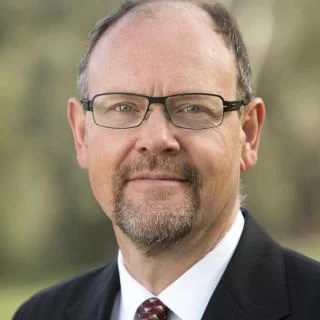
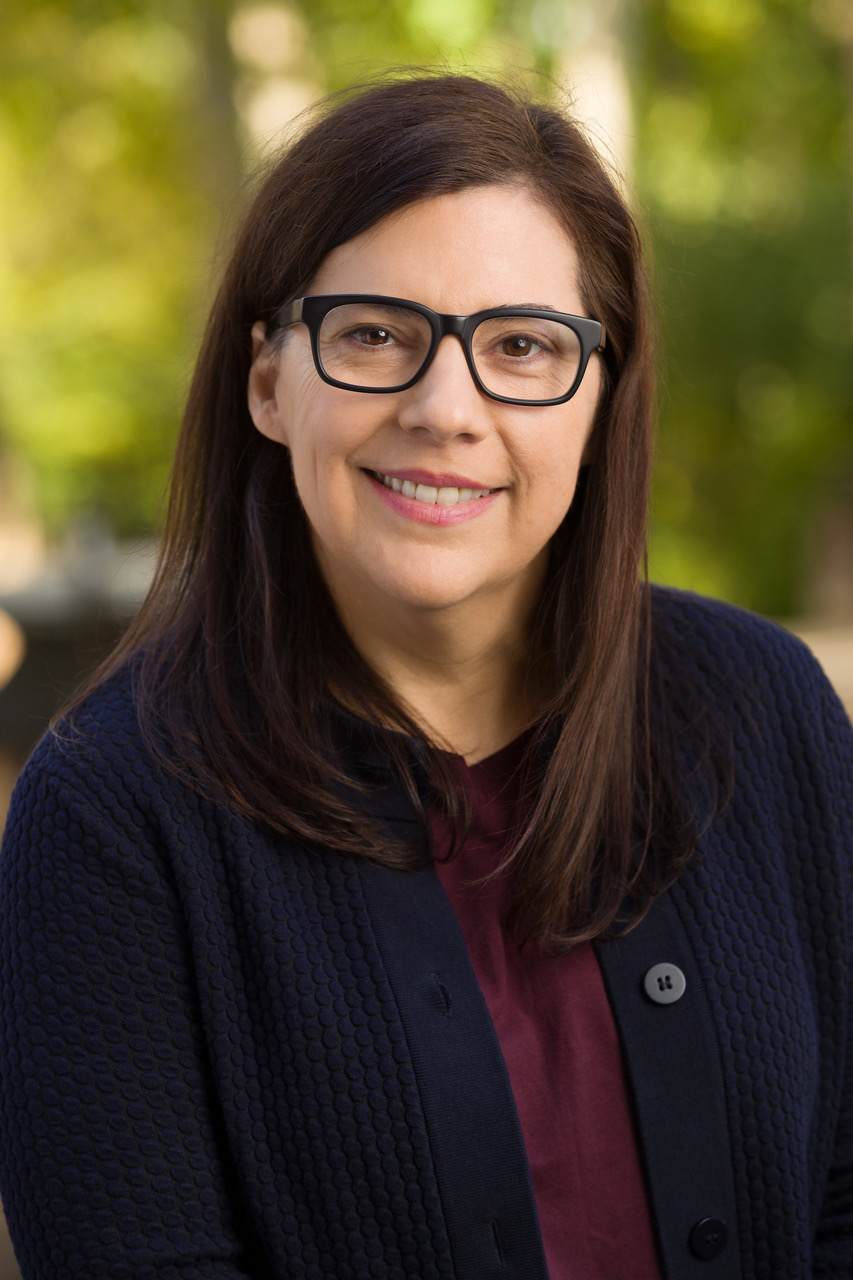
Pamela McElwee is Professor of Human Ecology at Rutgers, The State University of New Jersey in the US. Her research focuses on climate mitigation, ecosystem services valuation and biodiversity conservation, and human vulnerability and adaptation to environmental change. She recently cochaired the IPBES Nexus Assessment. She was also chapter lead for ecosystems, biodiversity, and ecosystem services for the Fifth US National Climate Assessment (2023), and has served as a lead author for the Intergovernmental Panel on Climate Change (IPCC) Special Report on Climate Change and Land. She is trained as an interdisciplinary environmental scientist, with a joint Ph.D. in anthropology and forestry from Yale.
Paula Harrison is Principal Natural Capital Scientist at the UK Centre for Ecology & Hydrology and Professor of Land and Water Modelling at Lancaster University. She specialises in the co-creation of integrated scenarios and models to provide evidence for informing systemic solutions that enable transitions towards sustainable and just futures. She recently co-chaired the IPBES Nexus Assessment on the interlinkages among biodiversity, water, food, health and climate change. Previously, she was a member of the IPBES Scenarios & Models Task Force, a Coordinating Lead Author of the IPBES Europe and Central Asia Assessment and a contributing author to the IPBES Global Assessment.


Andrew Petersen is the Chief Executive Officer of the Business Council for Sustainable Development Australia (BCSDA), the Australian network partner of the World Business Council for Sustainable Development. With over two decades of experience in corporate sustainability, Andrew advises government and industry on practical solutions that balance economic growth with ecological stewardship. Under his leadership, BCSDA advocates for nature-positive policies, climate resilience, and circular economic pathways, forging strategic partnerships to align business innovation with global sustainability goals.
Jeremy Russell-Smith has 40+ years of experience researching savanna fire ecology, carbon market, ecosystem services, and associated livelihood opportunities for land managers and Indigenous communities in northern Australia and other countries. Over the past 25 years he has been involved with developing and applying savanna fire management carbon and related nature-based methods. He is honorary Research Director, Darwin Centre for Bushfire Research at Charles Darwin University, and Principal Scientist, International Savanna Fire Management Initiative.
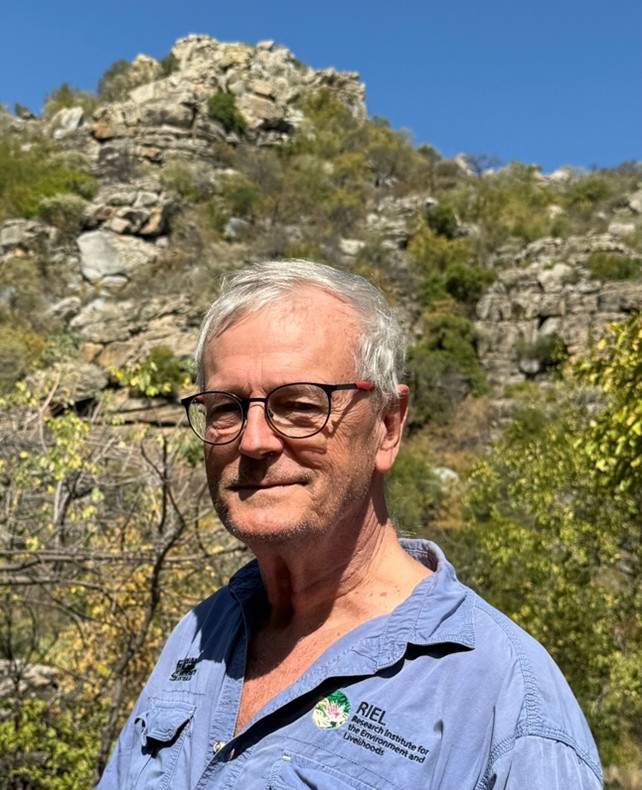
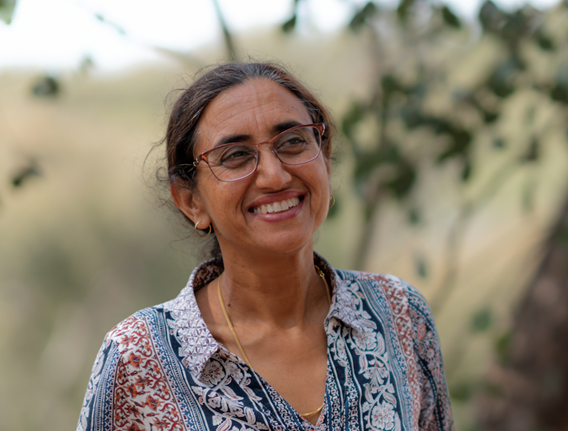
Kamaljit K Sangha works as an outstanding future researcher in Ecological Economics at Charles Darwin University, Australia. Her research informs the Science-Policy interface by highlighting Indigenous Peoples’ and Local Communities’ (IPLCs) perspectives towards nature and the management of natural resources. Her work is focused on linking ecosystem services (ES) with the well-being of Indigenous/tribal communities across northern Australia and the Western Ghats in India. She has developed unique community values-based ES valuation techniques and frameworks and is currently working on developing ground-up, culturally appropriate, nature-based economies (PES), particularly suiting IPLCs’ context.
She is the Co-Chair of the IUCN-CEESP-led Local Economies, Communities and Nature specialist group and lead author for the IPBES-led Nexus Assessment and UNEP’s Geo-7 Assessment Report.
Stephen Syampungani is the holder of the ORTARChI, Professorial Chair of Environment and Development at Copperbelt University. Additionally, Stephen is an Extraordinary Professor in the Department of Plant and Soil Sciences at the University of Pretoria. He holds a BSc Forestry from Copperbelt University, an MSc in Environmental Engineering and a PhD in Woodland Ecology and Management from the University of Nottingham, UK and Stellenbosch University, RSA, respectively. His main area of expertise includes ecosystem restoration, ecosystem services and management. He has extensive working knowledge of Central and Southern African ecosystems & his current research links rural livelihoods to sustainable management of the African savanna ecosystems. Additionally, Stephen works on bioremediation of contaminated mining-generated wastelands (both aquatic and terrestrial ecosystems) of the Central African Copperbelt (CACB). Lastly, Stephen has collaborated with a number of universities in both Africa (e.g., University of Cape Town and University of Free State) and Europe (Swedish University of Agricultural Sciences, Wageningen University & Technical University of Munich, Germany) where he has either been involved as graduate student supervision (i.e. Msc and PhD levels) or as a visiting scholar.
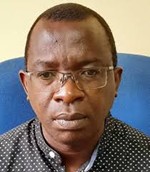
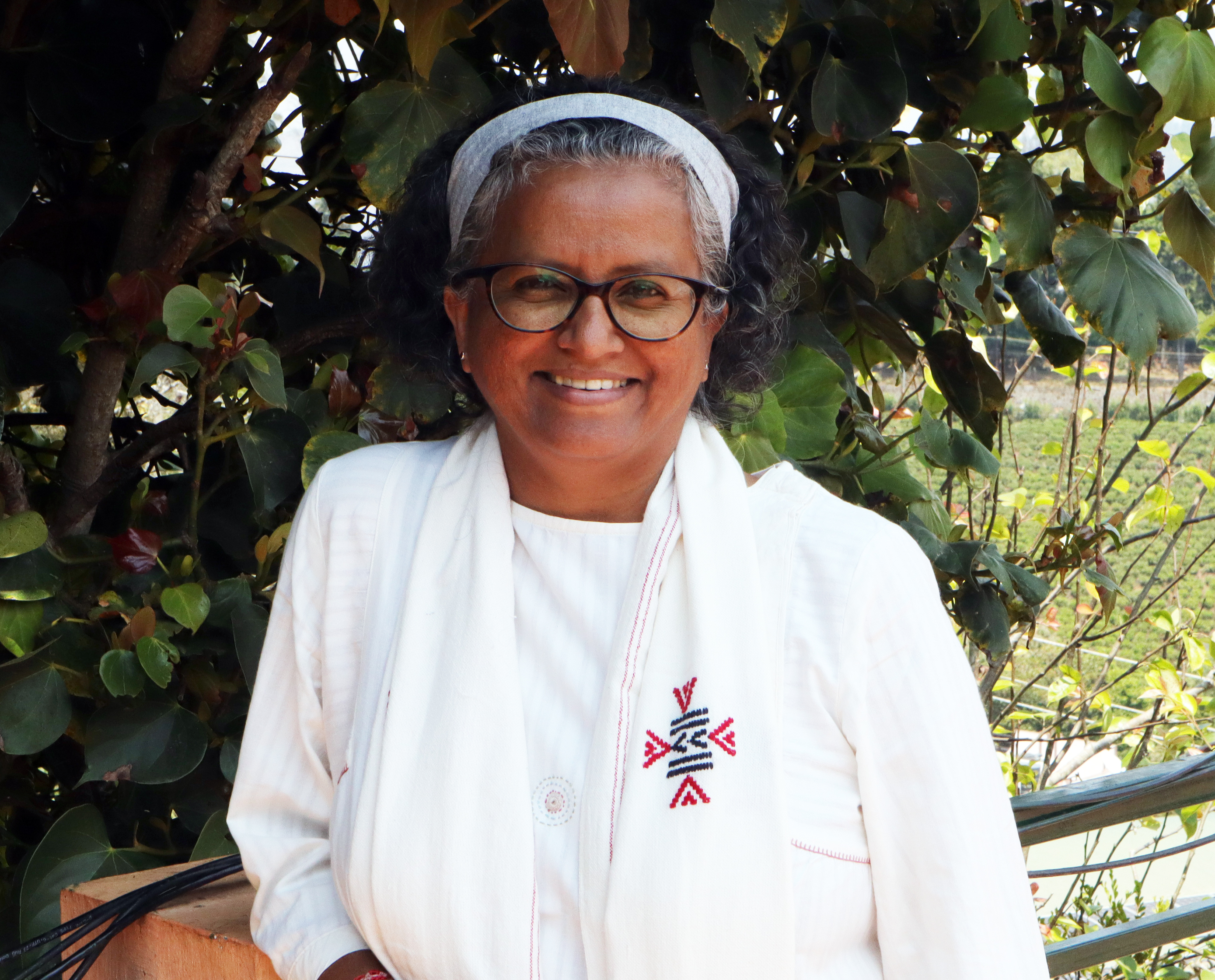
Anita Varghese is Director at Keystone Foundation . She leads the biodiversity team at Keystone, which undertakes implementation and action research projects on human-wildlife interactions, apiculture, restoration, and climate change. She is one of the founders of the Nilgiri Natural History Society. She is chair of the Western Ghats Plant Specialist Group of the SSC IUCN, which was established in 2019. She is a member of the Sustainable Use and Livelihoods Specialist Group steering committee (CEESP/SSC- IUCN) and Cycad Specialist Group (SSC/IUCN). She is interested in conservation, specifically on sustainable use, non-timber forest products, long-term population dynamics of harvested species, human-wildlife interactions, invasive plants, cycads, and endangered trees. Her work looks at the factors that mediate the relationship between people and nature, specifically how the goals of conservation and development can be harmonized
Professor Anne Poelina is a Nyikina Warrwa woman from the Kimberley region of Western Australia. She is an active community leader, human and earth rights advocate, film maker and respected academic researcher, with a second Doctor of Philosophy (First Law) titled, ‘Martuwarra First Law Multi-Species Justice Declaration of Interdependence: Wellbeing of Land, Living Waters, and Indigenous Australian People’ (Nulungu Institute of Research, University of Notre Dame, Broome, Western Australia). Anne, winner of the 2024 Geoethics Medal is also the Murray Darling Basin (MDB) inaugural First Nations appointment to its independent Advisory Committee on Social, Economic and Environmental Sciences (2022), and member of Institute for Water Futures, Australian National University, Canberra. Poelina was awarded the Kailisa Budevi Earth and Environment Award, International Women’s Day (2022) recognition of her global standing. Poelina is also an Ambassador for the Western Australian State Natural Rangelands Management (NRM) (2022). Read full biography
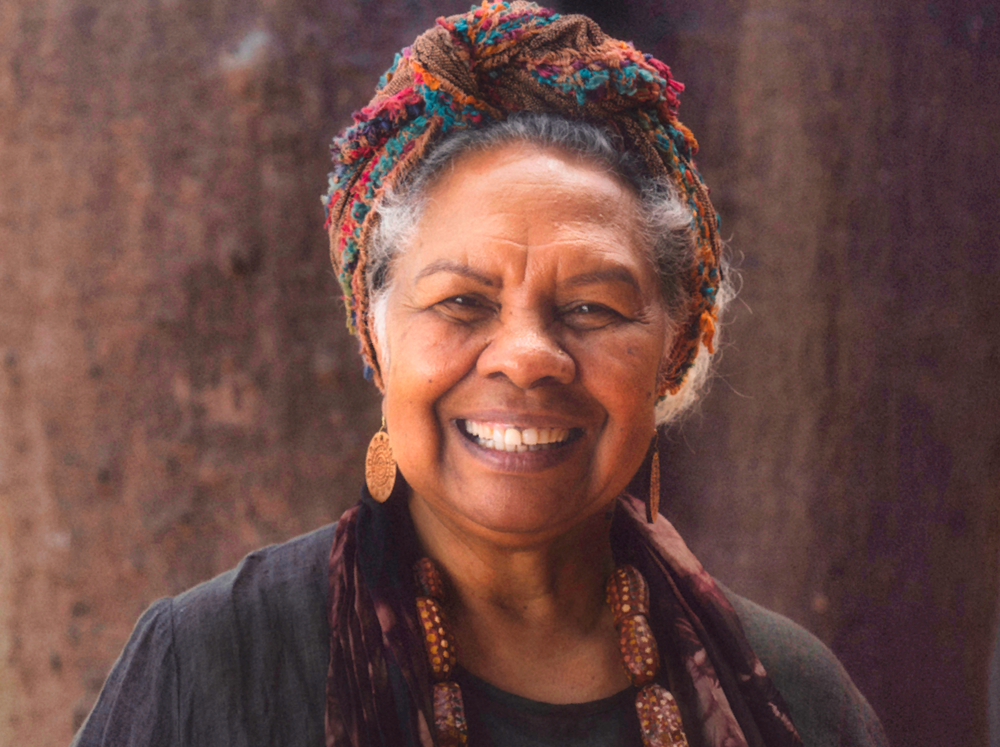
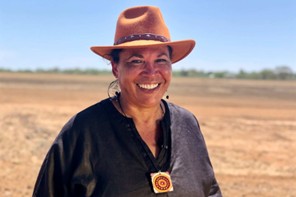
Suzanne Thompson is very proud of her ancestral bloodlines, and brimming with knowledge of her culture, Australian history, and innovative ways to share her passions with others in a respectful and contemporary way. With 30 years working in both the government and community sectors. Suzanne found herself following in her cultural footsteps as a pioneer for social and economic empowerment, trade, and indigenous self-determination. She is Founder and Managing Director of Yambangku Aboriginal Cultural Heritage and Tourism Development Aboriginal Corporation (YACHATDAC) which manages a 22,000 Acre Property in Outback Central Western Queensland, she is now redefining the very idea of social enterprise and appropriate cultural trading methods that will ensure a safe and transparent economic future for indigenous people. Suzanne also volunteers her time as the Chair of the Australian Native Foods and Botanicals (ANFAB) National Peak body and is working directly to secure indigenous interests and right in this rapidly expanding global marketplace. She has just been appointed as indigenous advisor to the Tourism & Events Queensland board (TEQ), and interim secretary for the newly formed Queensland First Nations Tourism Council, the peak body for First Nations Tourism in Queensland. She is currently fostering support and investment for nature-based economies, including Indigenous Land Management, Carbon Farming and First Foods & Medicines, and the recognition, protection, and renumeration of indigenous intellectual knowledge by industry, simultaneously orchestrating YACHATDAC’S vision to establish the Turraburra Research Institute ‘On Country’ between YACHATDAC, Griffith University, University Partners & key stakeholders. She is a key First Nations participant and contributor to the Central Western Queensland Ministerial Round Table for her invaluable insights and connections to Regional Outback Queensland, and is very proud to be a member of Landcare Australia’s newly established First Nations working group. More recently, Suzanne has been appointed by Prime Minister Anthony Albanese as the First Nations Integrity member to the Emissions Reduction Assurance Committee/Carbon Abatement Integrity Committee.
ESP11
 Registration website for ESP11
Registration website for ESP11ESP11iskra.konovska@fsd.nl
ESP11iskra.konovska@fsd.nlhttps://www.espconference.org/esp11
2025-06-23
2025-06-27
OfflineEventAttendanceMode
EventScheduled
ESP11ESP110.00EUROnlineOnly2019-01-01T00:00:00Z
To be announcedTo be announcedevent registration made easy
aanmelder.nl is the software partner for events.
Click here to discover the software.